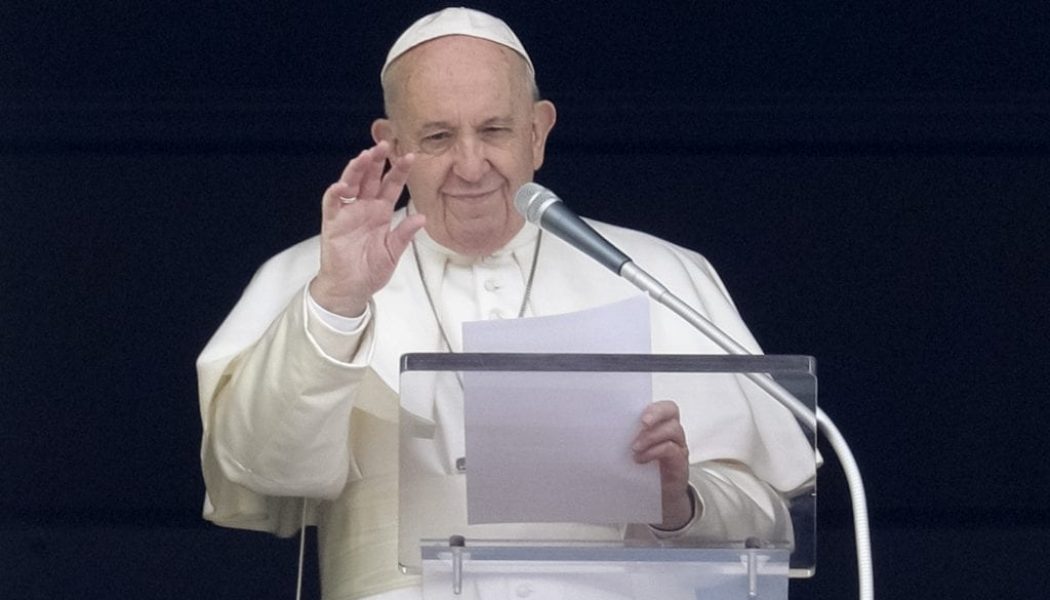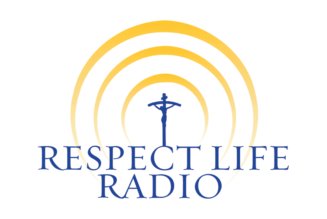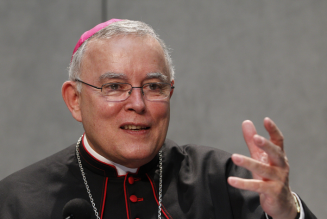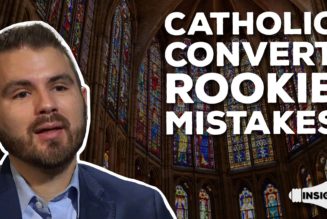
ROME – A mini-panic broke out in Rome Tuesday following an article in the Roman newspaper Il Messaggero by veteran Vatican reporter Franca Giansoldati, who reported that Pope Francis has undergone a test for the coronavirus and the results were negative.
Prompting the ferment is the fact that Francis has been suffering from what’s been described by the Vatican as a “light cold,” which has caused him to cancel several public engagements over the last week and to restrict himself to appointments within the Domus Santa Marta, the hotel on Vatican grounds where he’s chosen to reside since his election in 2013 – the anniversary of which will be marked in just a few days.
Francis also was forced to bail on the annual Lenten retreat for the Roman Curia held in Ariccia, a town nestled in the hills outside Rome, restricting himself to following it at a distance.
What drove Vatican-watchers batty is not so much the idea that Francis’s medical team would have carried out a test for the coronavirus — which, since he’s sick and the disease has a large footprint in Italy, seems an entirely reasonable precaution. In fact, given the circumstances, the real story probably would have been why the pope hadn’t been tested for the disease.
Instead, the thing driving some people crazy is that the Vatican didn’t provide any comment on Giansoldati’s story, so that journalists have been left to traffic in second-hand reports and conjecture rather than officially confirmed information.
The most we got was a fairly oblique statement on Tuesday from the Vatican Press Office, which said: “The cold diagnosed in the Holy Father in the past few days is taking it course, without symptoms attributable to other pathologies.”
In all honesty, the reticence shouldn’t be terribly surprising. Over the years, the Vatican has always been extremely reluctant to divulge information concerning what it would consider the private life of a pope, especially when it concerns his health.
When I first arrived in Rome as a cub reporter in the 1990s, the city was awash with rumors that Pope John Paul II had Parkinson’s disease. Italian newspapers routinely carried reports to that effect, though all were unsourced. In my naiveté, I decided to call a Vatican spokesman to put the question on the record.
When I finally got someone on the line, the answer was brusque: “Si tratta della vita privata del papa,” he said, meaning, “It’s a matter of the pope’s private life.” The response was meant to end the conversation, and the dial tone I was greeted with on the phone after it was uttered sort of put an exclamation point on things.
There’s a grand history of such refusals. On August 19, 1914, for example, L’Osservatore Romano, the official Vatican newspaper, published a stinging editorial denouncing unnamed commentators who had suggested the previous day that Pope Pius X had a cold.
Less than twenty-four hours later, Pius X was dead.
Historically, the most reliable way to destabilize a monarchy, whether of the secular or ecclesiastical sort, is to suggest that the king is ill. Traditionally, therefore, the Vatican is extremely reluctant to acknowledge that a pope is ill, fearing that it will induce a fin de régime scramble for power and turn the sitting pope into a lame duck.
None of this is to suggest there’s any reason to think that Pope Francis is seriously ill, or that the Vatican’s explanation of a “light cold” isn’t correct. To date, Francis has shown himself to be remarkably resilient despite his age, and the fact that there isn’t already a full-blown health panic afoot in Rome is testament to the confidence most close observers have that he’s still essentially good to go.
Two points from the current bout of papal sniffles, however, suggest themselves.
First, it’s a reminder that sooner or later, the 83-year-old Francis will go into decline. How that will play itself out, meaning how long an illness might unfold and whether he’d choose to resign if he feels he can’t govern effectively any longer, is impossible to say, but the brute fact is that no papacy goes on forever.
The current hiccup, therefore, beckons the question of whether cardinals who will be voting in the next papal election may be thinking more intentionally right now about what comes next. It would be natural if they were – perhaps especially the expanded number of cardinals from outside the West created by Francis, such as cardinals from Myanmar, and Cape Verde, and Tonga, and Laos, who’ve never had to think about deciding the future leadership of the Church before, and who may have been reminded by this week’s events that someday they’ll have to make that fateful choice.
Second, the pope’s case of the cold this week also raises the question of what the Vatican will tell us when things are more serious.
Francis has endeavored to promote a culture of transparency in the Church, urging officials at all levels to tell the truth even when it’s inconvenient, on the conviction that it’s ultimately better to take a small hit up-front than a much bigger one down the road. It will be interesting to see if that philosophy also drives Vatican communications when the pope’s health truly is uncertain, or if the institution falls back on its historical patterns.
In the meantime, one hopes that Francis stages a quick recovery and is good to go as Catholicism nears the holiest period on its calendar – assuming, that is, coronavirus fears don’t scuttle Holy Week in Rome the same way they’re laying waste to public activities everywhere else.
Follow John Allen on Twitter: @JohnLAllenJr
Crux is dedicated to smart, wired and independent reporting on the Vatican and worldwide Catholic Church. That kind of reporting doesn’t come cheap, and we need your support. You can help Crux by giving a small amount monthly, or with a onetime gift. Please remember, Crux is a for-profit organization, so contributions are not tax-deductible.









